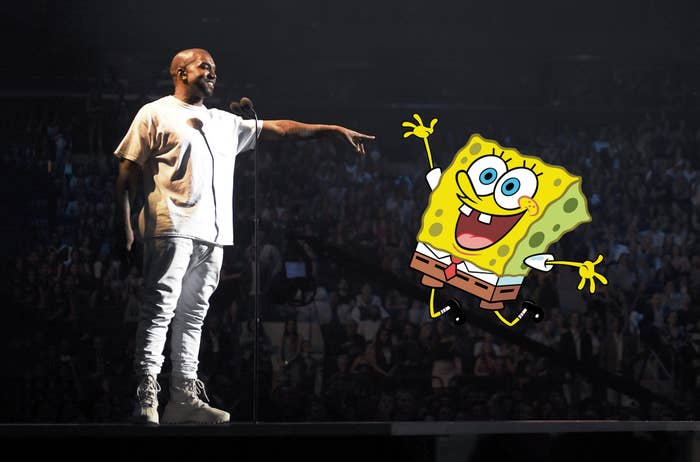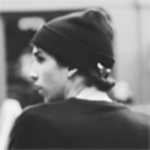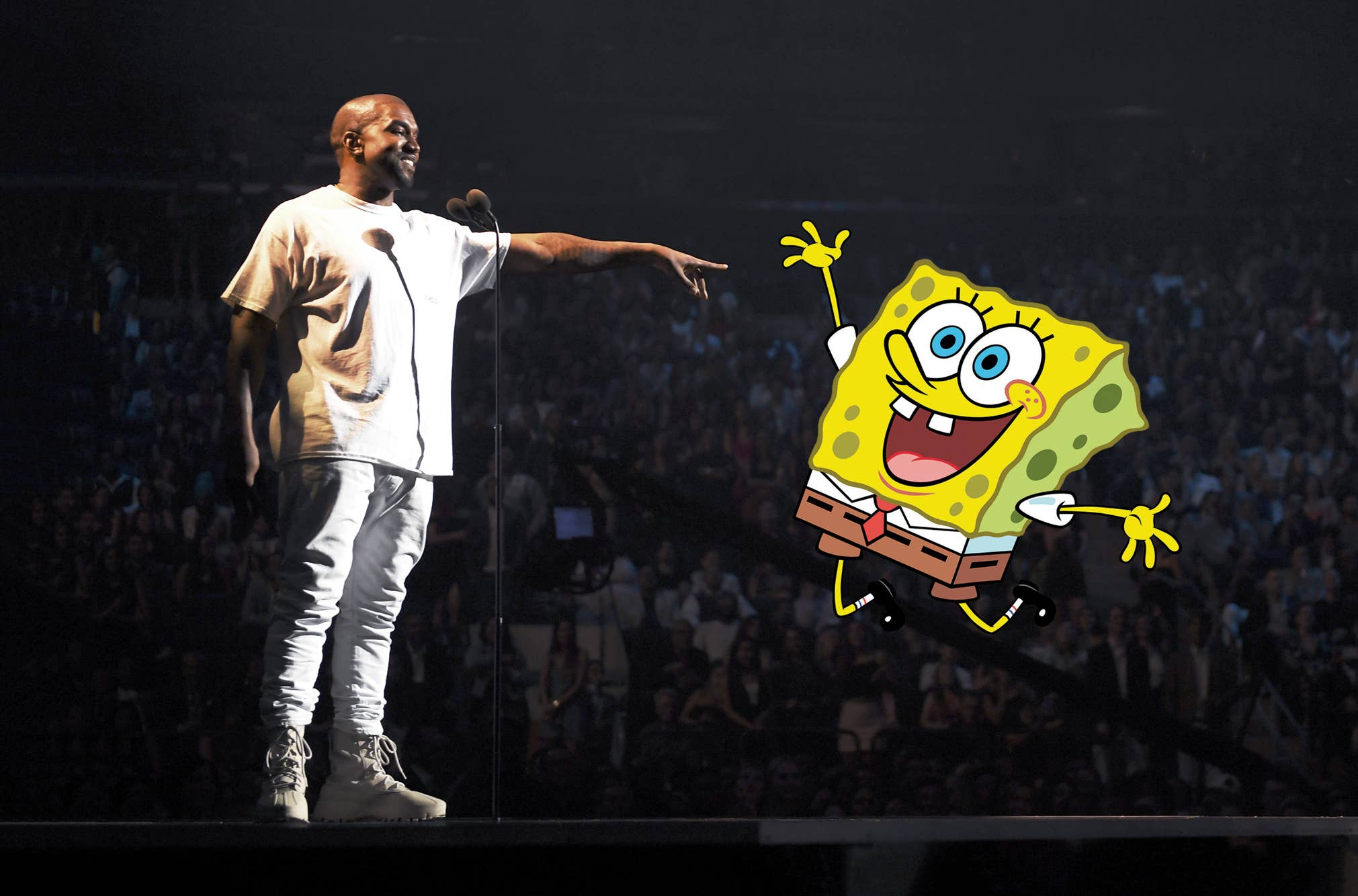
Who lives in a pineapple under the sea, and quietly influences the future of rap?
SpongeBob SquarePants!
The little yellow character has become ubiquitous in today's internet culture. Wherever you scroll, you’ll see SpongeBob’s exaggerated mug, accompanied by his friends Mr. Krabs, Squidward, and Patrick. Now, after years of taking over our timelines, the faces of Nickelodeon's 19-year-old television series are starting to change the business of rap.
SpongeBob SquarePants and other shows like The Simpsons, Hey Arnold!, and Arthur have become go-to source material for fan-made videos that pair rap songs with scenes from old cartoons. In the early to mid-2010s, the trend existed on the fringes of the internet as works of fan art. But by 2019, if the right song is used in the right meme, artists (and their record labels) are seeing significant increases in streaming revenue and exposure.
"We've seen immediate growth on streaming services for at least a couple of weeks with artists like Trevor Daniel getting a boost from cartoon memes," says Todd Moscowitz, founder of Alamo Records.
"Our artists with large social followings, like Smokepurpp and Comethazine, saw millions of views on the content they posted directly to their accounts,” adds Jackson Weingart, head of digital at Alamo. “Newer, lesser-known artists, like Trevor Daniel, accumulated a few hundred thousand views on the original upload, which, for a new artist, is a massive amount of exposure. These numbers don’t even include the additional views from third party accounts and sites that re-post the content."
In the streaming era, the impact of cartoon memes on artists’ careers (and bank accounts) can be seen in real time. "Streaming-wise, we saw spikes ranging from an increase of 122 percent, all the way up to 600 percent, directly following the content going live," Weingart reveals.
The positive effects of having a song in a popular meme extend beyond increases in streaming numbers. One record label executive, who asked to remain anonymous, told Complex about a recent meme from an old Cartoon Network show that directly led to a major label deal for a young rapper.
"Streaming-wise, we saw spikes ranging from an increase of 122 percent, all the way up to 600 percent." - Jackson Weingart
John Walaszek, who has been making cartoon memes for music discovery site Pigeons & Planes since early 2016, credits the success of these clips to the novelty factor of hearing new music in the context of childhood memories: “Seeing a cartoon that you have nostalgia for from when you were a kid and then pairing it with a rap song is just one of those juxtapositions that will always work.”
"There is something about pairing cartoons, especially those from yesteryear, with the music of today that's just fun,” says Clifford Joseph, head of marketing at Alamo Records. “Just think, you're already a SpongeBob fan or a Rick and Morty fan so you're clicking on the post; then you hear music in the background that's kinda cool and goes with the cartoon. After it ends you're like, ‘Now I have this song in my head. Who was that? It's kinda catchy.’” He adds, “It's quick, fun, simple, and a moment that's easily shareable, so this generation loves it. The power of nostalgia mixed with the right song is a combination that can't be ignored."
Fans have been adding music to old SpongeBob clips for at least a decade (some say this 2008 “Chocolate Rain” clip started it all), but the trend has exploded in the last few years, alongside an increase in SpongeBob samples and lyric references on songs from artists like Lil Pump, Ski Mask the Slump God, and YBN Nahmir.
Pointing out that the show’s 19-year runtime is lining up perfectly for multiple generations right now, Walaszek says, “Kids who are really good on the internet, like the young 15-year-olds, had SpongeBob when they were kids. And I'm almost 30, but I remember SpongeBob when I was a kid, too. So I feel like it’s the cartoon that hits both groups. The generation above me doesn't get the SpongeBob stuff as much, but I think SpongeBob spans at least 20 years. I’ve used Hey Arnold!, too. I feel like Hey Arnold! is going underappreciated and someone could make that pop, but Hey Arnold! went for less than ten years, so kids today don't remember it. Or at least they don’t know it as well as SpongeBob, which is probably on Nickelodeon right now. If I had it my way, I'd only make Simpsons ones. It's the best cartoon ever. And Simpsons is starting to get more popular on the internet, but I think SpongeBob for whatever reason, it just hits so many people.”
"Any time something is successful organically, someone somewhere is going to want to figure out how to monetize it." - John Walaszek
While SpongeBob is the indisputable king at the moment, cartoon memes of all kinds have benefited rising artists and established stars alike. Migos’ “Bad & Boujee” was launched to No. 1 on the Billboard Hot 100 in 2017, in part because it was used in so many memes (Offset specifically credited Walaszek’s viral Grinch clip as his favorite). More recently, in December 2018, Walaszek made a SpongeBob meme using “Blood on the Leaves,” which was retweeted by Kanye West (and later shared by other members of the family including Kendall, Kourtney, and Rob).
Of course, now that the cartoon meme phenomenon has reached the upper echelon of rap, it faces the same danger as any trend that enters the mainstream. “Any time something is successful organically, someone somewhere is going to want to figure out how to monetize it,” Walaszek says. “What used to be just a fun thing that people are doing, now every label wants their song to get the SpongeBob treatment or to get the cartoon treatment and go viral, even though it might not be the right fit for it.”
In 2019, getting a song placed in a viral SpongeBob clip can be just as effective as any traditional promotional tactic. But before every major label executive starts dumping full marketing budgets into SpongeBob meme campaigns, they should be prepared to see lackluster results if anything feels contrived.
“It's always the ones I put the most effort into, and I'm like, ‘This is going to go viral,’ and then it doesn't because kids can sense it,” Walaszek says. “They can sense the effort. If you look back through the old Pigeons & Planes ones I did, sometimes the proportions are off. There are letterboxes and weird things. A lot of times it's shitty, because I was doing it on my shitty software, and I'm not a pro at editing anything so it was naturally janky. But to me, that’s the charm of it. People want shit to feel like that. It's fun when it feels raw, like a kid in their bedroom did it.”

